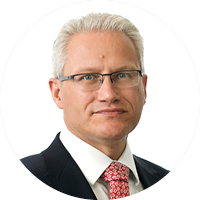Investors seem to have avoided Japan since the start of the year, with the country seeing two prime minister changes since Shinzo Abe left office in late 2020, as well as a weak yen amid now ultra-low interest rates.
The Japan Large-Cap Equity sector has registered net outflows of €3.49bn from the start of 2022 to May, according to Morningstar data. In the first quarter of the year, it saw outflows of €1.65bn, outstripping the €1.51bn withdrawn in the last quarter of 2021.
Meanwhile, investors have pulled €637m from the Japan Small/Mid-cap Equity sector this year to May, and withdrew €306m in the first quarter of 2022. The last time this sector clocked up net inflows was the first quarter of 2021, Morningstar data shows.
Speaking to Citywire Selector, Tom Baragry, a multi-manager at Bank of Ireland Investment Markets, said Japan is not an area he has researched a lot in the last 18 months, and represents only around 3% of his investments.
Baragry believes international investors perceive Japan as a cyclical market with companies that have operating leverage to the global economic cycle. However, he highlights that in 2021, when global growth was at record levels, Japan did ‘a poor job’ of managing the pandemic and as a result the market did not deliver.
‘This market is very under-owned by investors. In Ireland, people still remember the 1990s, when the Nikkei halved. There is the perception that it continually fails to deliver,’ he said.
‘The long-term rationale for investing in Japan is a structural reform, improved governance and greater shareholder focus. The economy has been left behind with regards to the digital transformation and as a result investors have lost interest.’
Several selectors we contacted said they were not currently invested in the region and one said they won’t be looking for investment opportunities in Japan in the coming months.

‘The long-term rationale for investing in Japan is a structural reform, improved governance and greater shareholder focus. The economy has been left behind with regards to the digital transformation and as a result investors have lost interest’
Tom Baragry, fund manager, Bank of Ireland Investment Markets
However, others, such as Joe Rowland, a fund selection specialist at Investec Wealth & Investment UK, said they are now invested in the territory.
‘The Japanese market has continued to be a source of pain for many investors over the years but the corporate governance revolution is now gaining momentum and is offering a glimmer of hope,’ he said.
‘This is evident from the numerous unwindings of cross holdings each quarter and the large dividends and buybacks being awarded to shareholders with the proceeds. Given that many companies still trade with over 80% of their market cap being held in cash, there is plenty of room for this trend to continue.’
Meanwhile, David Gasso, managing director of Anchor Capital Advisors, has a neutral view on Japan. He believes the macro picture for the country looks better than other developed countries.
‘Money flows are currently not supportive, and the yen is weak against major hard currencies. Looking ahead, Japan can outperform as an exporter economy and should benefit from lower inflation,’ Gasso said.
‘Valuations are low and the earnings-yield gap is the highest among developed countries, so it looks a bit under-priced and a good buying opportunity in the long run.’
‘The Japanese market has continued to be a source of pain for many investors over the years but now the corporate governance revolution is gaining momentum and is offering a glimmer of hope’
Joe Rowland, fund selection specialist, Investec Wealth & Investment UK
On-the-ground knowledge
Jan Lecluyse, co-founder and fund manager at Conventum-FensiFund, said that, for specific markets such as Japan, he prefers to choose a manager that operates locally.
Baragry echoes this, saying that a manager based in the field will be better positioned to find new opportunities rather than the usual banks, auto, steel and conglomerates that dominate the market.
Gasso agreed: ‘The Japanese culture is very different from Western standards, and so is business management. The risk of being locally biased is lower than the misconception from the foreigner. However, skills from the asset management team are key.’
Rowland also tends to look for local insight. However, this is not necessarily the only approach.
‘Many of the larger UK-based asset managers benefit from having numerous investment teams that invest globally; in a collegiate environment, these teams can bounce ideas off each other and provide a context of the global competitive landscape.
_200x200.png)
‘Looking ahead, Japan can outperform as an exporter economy and should benefit from lower inflation’
David Gasso, managing director, Anchor Capital Advisors
‘Some investment teams opt for the best of both worlds by being geographically split between London and Tokyo. However, this brings its own challenges as this split may not be conducive to a collegiate culture, where all team members feel comfortable challenging each other on investment rationale.’
Rowland said the adoption of video conferencing might have reduced the need to be based in Japan, as management teams can now be reached more easily.
‘The importance of location will depend on the investment philosophy and process, meaning a one-size-fits-all approach is inadequate,’ Rowland said.
Rowland added that the business culture in Japan is slowly changing with some management teams being very receptive to engagement, which, in his view, has led to some good mergers and business improvements that certain fund managers have benefited from.
‘In some cases, these changes can be described as “low hanging fruit”: easy to implement and quick to add value. Furthermore, the lack of sell-side coverage in some parts of the market and the cyclicality of flows based on macro inputs provides inefficiency for our fund managers to utilise.’

